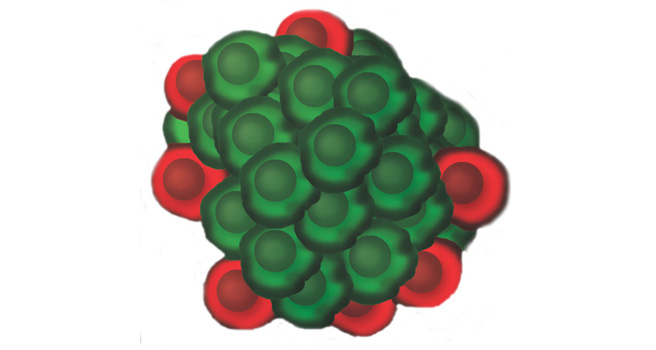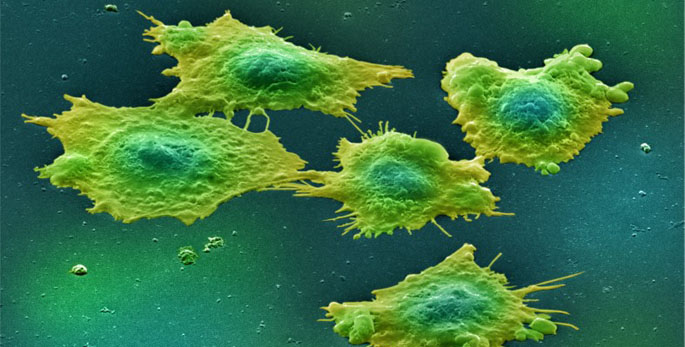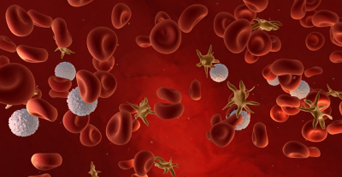Department Of Veterans Affairs
-

Powers receives award from Nutrition and Dietetics association
James Powers, M.D., associate professor of Medicine and chief of Geriatric Medicine at the Veteran Affairs Medical Center, was recently named to receive the Iris Award from the Nashville Academy of Nutrition and Dietetics. Read MoreMar 31, 2016
-

Readmission prediction face-off
Using patients’ health records to assess preparedness for hospital discharge is more effective at predicting readmission or death than commonly used questionnaires. Read MoreMar 23, 2016
-

Study suggests cancer’s ‘clock’ can be rewound
Researchers at Vanderbilt University Medical Center have “turned back the clock” in a mouse model of metaplasia — precancerous stomach lesions — raising hopes that gastric cancer, a worldwide scourge that’s rising in the United States, can be prevented. Read MoreMar 17, 2016
-

Combining treatments for melanoma
Combining therapies for melanoma that induce cell senescence and that activate the immune response may improve outcomes for patients. Read MoreFeb 18, 2016
-

Wound-healing scaffolds
The elasticity of a scaffold used for healing skin wounds is a key factor in promoting regeneration versus scarring. Read MoreJan 27, 2016
-

DISSECTing cell signaling networks
Vanderbilt researchers have developed a new method to study cell signaling networks at single-cell resolution. Read MoreDec 14, 2015
-

Microtubules act as cellular ‘rheostat’ to control insulin secretion
Microtubules — cellular “highways” that deliver cargo to the cell membrane for secretion — have a surprising role in pancreatic beta cells. Instead of facilitating glucose-stimulated insulin secretion, they limit it, a team of Vanderbilt investigators reported recently in Developmental Cell. Read MoreDec 3, 2015
-

Immune system a must for kidney repair
A signaling protein that is essential for recovery from acute kidney injury works by increasing the population of tissue-repairing immune cells. Read MoreNov 12, 2015
-

Detect and defend against pathogens
Understanding factors, such as the receptor TLR9, that detect and defend against pathogens may lead to therapeutic approaches that promote an effective immune response to treat infections. Read MoreNov 4, 2015
-

Inflammation, obesity and diabetes
Vanderbilt study adds to the mounting role for inflammatory signaling in obesity. Read MoreOct 29, 2015
-

Healing without scarring
Drugs that inhibit the Wnt signaling pathway can regenerate injured skin and may be useful in treating fibromatosis, degenerative joint disease and cancer. Read MoreOct 16, 2015
-

Depression poses heart risk for HIV patients: study
The first study to suggest that major depressive disorder (MDD) is an independent risk factor for heart failure in HIV-positive adults has been published in Circulation. Read MoreOct 8, 2015
-

Immune cells and obesity
Understanding how macrophage immune cells accumulate in fat tissue and contribute to the pathology of obesity could lead to the development of novel therapeutics for metabolic disorders. Read MoreSep 8, 2015
-

New therapeutic target for diabetes
The factor FoxM1 increases the proliferation and function of insulin-producing beta cells, making it an attractive therapeutic target for diabetes. Read MoreAug 20, 2015
-

Targeting bone metastasis
The rigidity of the bone extracellular matrix increases the ability of tumor cells to destroy bone, suggesting new targets for anticancer drug development. Read MoreJul 23, 2015
-

Study explores protein’s role in inflammation-associated cancer
An antioxidant protein may protect against colon cancer that develops in patients with inflammatory bowel disease, suggesting new strategies for reducing colon cancer risk in these patients. Read MoreJul 23, 2015
-

Hhex on cancer
A new mouse model demonstrates that the Hhex gene – which is linked to blood cancers – is critical for normal blood cell production. Read MoreJul 13, 2015
-

Delivering cells for heart repair
A polymer hydrogel material developed by Vanderbilt scientists improved the delivery of stem cells for heart repair. Read MoreJul 10, 2015
-

Boosting cell-based heart repair
A metabolic change in adult stem cells makes them less “fit” for regenerative heart therapies, suggesting that strategies to prevent this response may boost the therapeutic usefulness of the cells. Read MoreMay 15, 2015
-

Insights on lysosomal storage diseases
A novel mechanism could point to new therapies for a group of inherited diseases that share pathological features. Read MoreMay 14, 2015